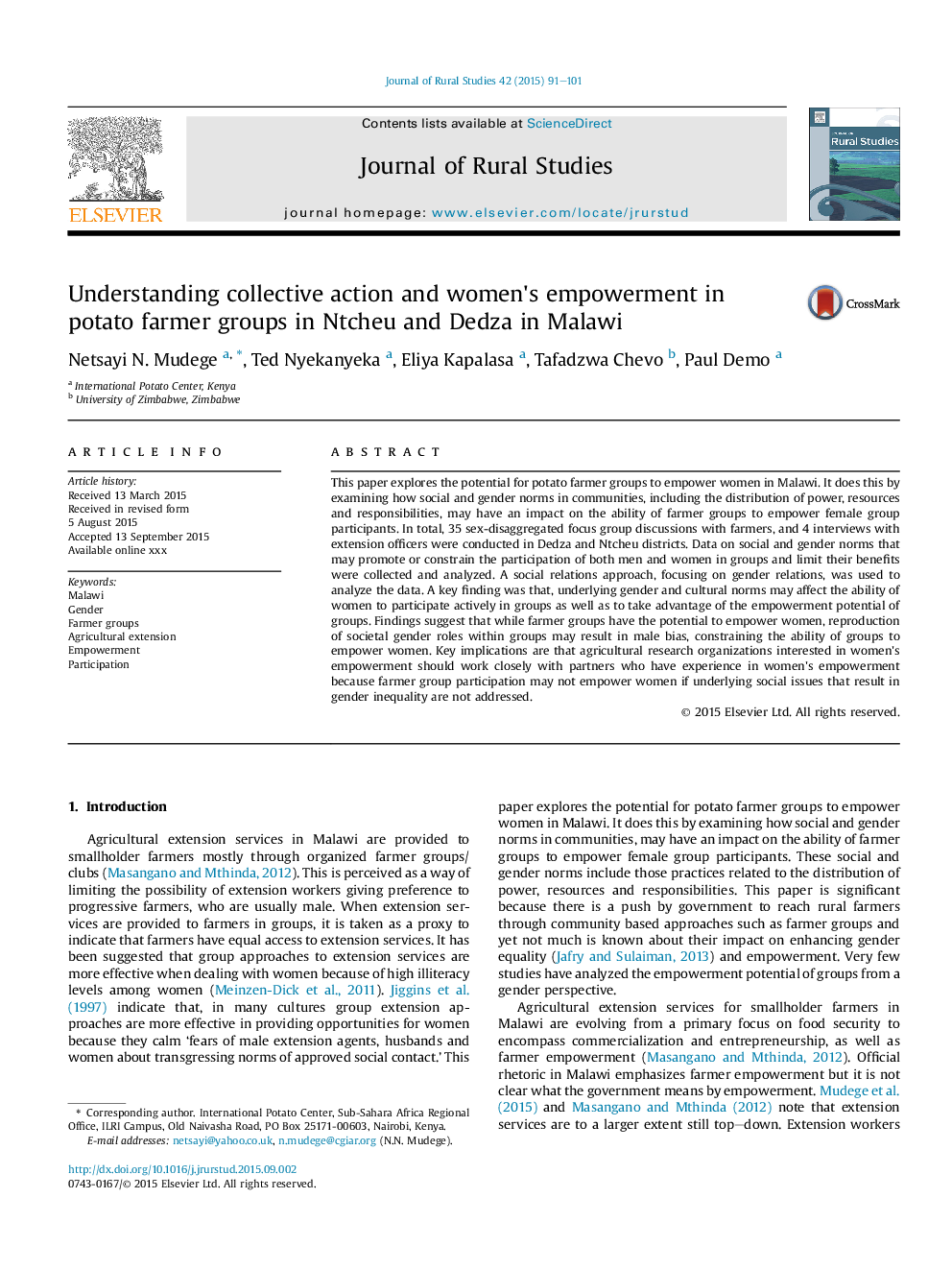| Article ID | Journal | Published Year | Pages | File Type |
|---|---|---|---|---|
| 6545576 | Journal of Rural Studies | 2015 | 11 Pages |
Abstract
This paper explores the potential for potato farmer groups to empower women in Malawi. It does this by examining how social and gender norms in communities, including the distribution of power, resources and responsibilities, may have an impact on the ability of farmer groups to empower female group participants. In total, 35 sex-disaggregated focus group discussions with farmers, and 4 interviews with extension officers were conducted in Dedza and Ntcheu districts. Data on social and gender norms that may promote or constrain the participation of both men and women in groups and limit their benefits were collected and analyzed. A social relations approach, focusing on gender relations, was used to analyze the data. A key finding was that, underlying gender and cultural norms may affect the ability of women to participate actively in groups as well as to take advantage of the empowerment potential of groups. Findings suggest that while farmer groups have the potential to empower women, reproduction of societal gender roles within groups may result in male bias, constraining the ability of groups to empower women. Key implications are that agricultural research organizations interested in women's empowerment should work closely with partners who have experience in women's empowerment because farmer group participation may not empower women if underlying social issues that result in gender inequality are not addressed.
Related Topics
Life Sciences
Agricultural and Biological Sciences
Forestry
Authors
Netsayi N. Mudege, Ted Nyekanyeka, Eliya Kapalasa, Tafadzwa Chevo, Paul Demo,
